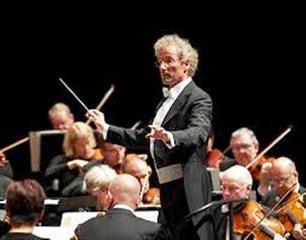|
Back
Haydn’s Meteorological Miracle New York
Isaac Stern Auditorium Carnegie Hall
01/24/2018 - & January 18, 20, 2018 (Cleveland)
Joseph Haydn: The Seasons
Golda Schultz (Soprano), Maximilian Schmitt (Tenor), Christian van Horn (Baritone)
Cleveland Orchestra Chorus, Lisa Wong (Acting Director), The Cleveland Orchestra, Franz Welser-Möst (Music Director and Conductor)

F. Welser-Möst and Cleveland Orchestra (© IMG Artists)
“Being cut off from the world, I had no choice but to be original.”
Franz Joseph Haydn
“Cut off:” meant Esterházy Palace in the remote rural area between Austria and Hungary, where the snows are fierce (I was snowbound there for a night), the summers are torrid, and where The Seasons took shape.
From last night’s performance with Franz Welser-Möst and the Cleveland Orchestra and Chorus, all four seasons were cheerful, lusty, desolate, pleasant and grand. Haydn might have belittled pictorialism in music (“French trash,” he called it. ) Yet he was never averse in his last secular choral piece to create all kinds of natural phenomena.
Maestro Franz Welser-Möst gave the whole long work a bucolic, effervescence. The evening, with an intermission was two-and-a-half hours long. But how could anybody feel the time? Not a single aria, chorus or orchestral interlude was like another. While I personally missed the “sinuous creeping worm” of The Creation (a far more dramatic piece), Haydn presented us with swimming fish, buzzing bees, croaking frogs, hunting dogs, and (one almost cries at this), the stag run to the ground, a tympani bang and then death.
Yet the composer never dwells on these things. The “tally ho’s” and “hurrahs” of the hunters are drowned out with an orgiastic drinking song, a spinning song, a few arias about love, and countless choruses celebrating beneficent harvests for the rural population which the composer knew so well in his Magyar outpost.
And just when Haydn was getting metrologically bogged down in snow (one singer talks of getting frostbite) or blazing sun, he comes up with his own Haydnesque joke. He surprises us with the theme from the “Surprise” Symphony), he quotes from earlier symphonies, and he gives us the kind of storm which Beethoven obviously copied in his “Pastorale.”
Add to this the usual anthems–though all different, with trumpets or fugues–celebrating either God or the Sun or The Heavens.
Admittedly, this is not Creation. That marvelous oratorio is far more dramatic, it has the magic of the Bible with miracles to spare. The Seasons has no magical references. Like Vivaldi’s concertos, it deals with farmers (both tenor and soprano have a romance through the year), crops, harvesting and resting. Besides which, this was Haydn’s “English” oratorio, with the words written in English and German. (Mr. Welser-Möst used the German, since the English is pretty mawkish.)
Thus, after the first moody overture, we turn to choruses which could have come from Gilbert and Sullivan: women singing in major thirds, men and women serenading each other, and all too pretty-pretty music, which could have come from a Purcell masque or John Dowland lyrics. One soon forgets this, almost immediately stops comparing it to Handel and gets on with the show.
Conductor Welser-Möst knows how to build the show with his impeccable Cleveland Orchestra. Obviously they were more “naked” the night before with Mahler’s Ninth Symphony. But he made the rafters resound with hunting horns, with brass choirs and a beautiful oboe solo. The pacing was that of a conductor who knows his opera, won’t let a recitative sag or a cavatina be anything but light and luscious.
Here they were clothed with Lisa Wong’s Cleveland Orchestra Chorus, a professional group which could be lusty, Arcadian, or an utterly beautiful piece in “Autumn”, “Thus nature rewards the toils of men”. Hesiod would have been pleased.

G. Schultz (© Metopera.org)
The male soloists were more than adequate, but it was South African soprano Golda Schultz who was most individual. This is a voice which was light, silky-smooth, subtle and sweet. Her aria, “Oh, how pleasing to the senses” was as beautiful as anything written by Handel or Mozart, and her summery execution was impeccable.
I left Carnegie Hall immediately after the baton was put down, not wishing to defile the pastoral atmosphere. And while hating to defile this review with a bad play on words, what choice do I have but to say that for those who are made wretched by the gloom of Trump, one might find sunlight and joy by joyously going into Haydn.
Harry Rolnick
|